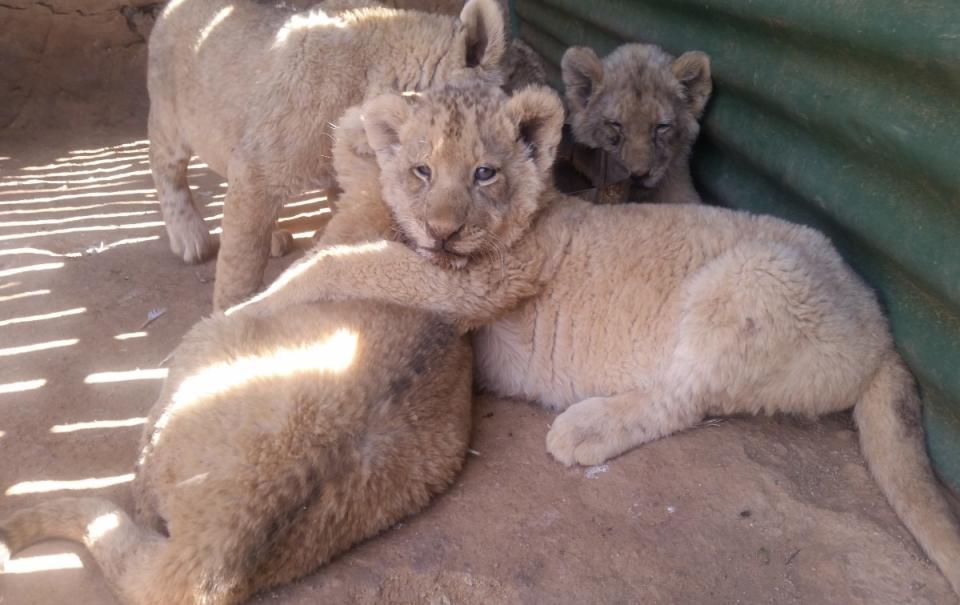Mass lion bone seizure at South African airport sparks widespread calls to end 'sick industry'

A mass seizure of lion bones in South Africa has sparked calls to ban the captive breeding of the animals for tourism and traditional medicine purposes.
Earlier in October, officials at Johannesburg’s O.R. Tambo International Airport seized 12 boxes that had been stuffed with 342kg of lion bones destined for Malaysia.
The remnants - which equate to an estimated 38 lions - were to be sent to the Asian country to be used for traditional medicine.

There are between 8,000 to 11,000 captive lion cubs in South Africa, most of which are bred on farms across the country before being sold for tourist “cub petting” - before they are sold off when fully grown.
The adult lions are then killed by trophy hunters, who seek to sell bones overseas in the vast market for medicinal remedies across Asia.
Read more on Yahoo News UK
Wheelchair user wets himself at bus stop after three drivers refuse to let him on
Thousands watched livestream of German gunman kill two people on Amazon's Twitch
Tory Brexiteer in furious row with fellow MP who 'buggered off to the Lib Dems'
But the trade of selling the bones of lions in captivity - which at present is legal - has been slammed by animal charity Humane Society International, which has called for an end to what it describes as a “sick industry”.
Audrey Delsink, Wildlife Director for Humane Society International/Africa, said: “We commend the authorities for foiling an alleged lion bone-smuggling attempt at O.R. Tambo International Airport. But as welcome as this seizure may be, it also demonstrates that despite assurances, the department is unable to control this greedy and cruel industry.
"The lion bone trade may be legal but it brings shame on South Africa. Captive lion breeding that feeds the lion bone and canned lion hunting trades involves horrific animal welfare atrocities that can no longer be ignored.

"Despite only contributing a mere 1.85% to South Africa's tourism economy, this heartless exploitation of lions could very well undermine South Africa's brand attractiveness as global tourists increasingly demand higher ethical standards.
"One seizure does not represent a victory, it’s a sad sign of the failure to end the suffering. It’s time for this sick industry to be closed down."

In the wild, lion cubs remain with their mothers for 18 months, and females rest for at least 15-24 months between litters. Cubs born on breeding farms are taken from their mothers when they are a few days or even hours old.
Lions are a threatened species and are listed as “Vulnerable” by the International Union for the Conservation of Nature (IUCN).
While the Convention on International Trade in Endangered Species of Wild Fauna and Flora (CITES) has outlawed the trade of bones from wild lions, it allows South Africa to export bones from captive lions.

 Yahoo News
Yahoo News 
